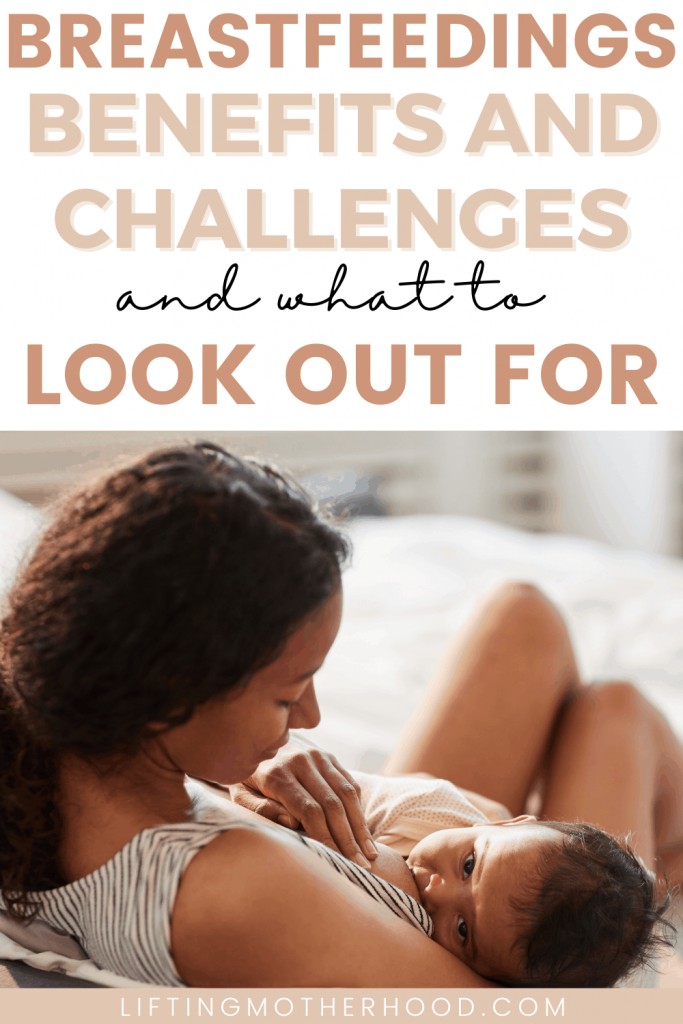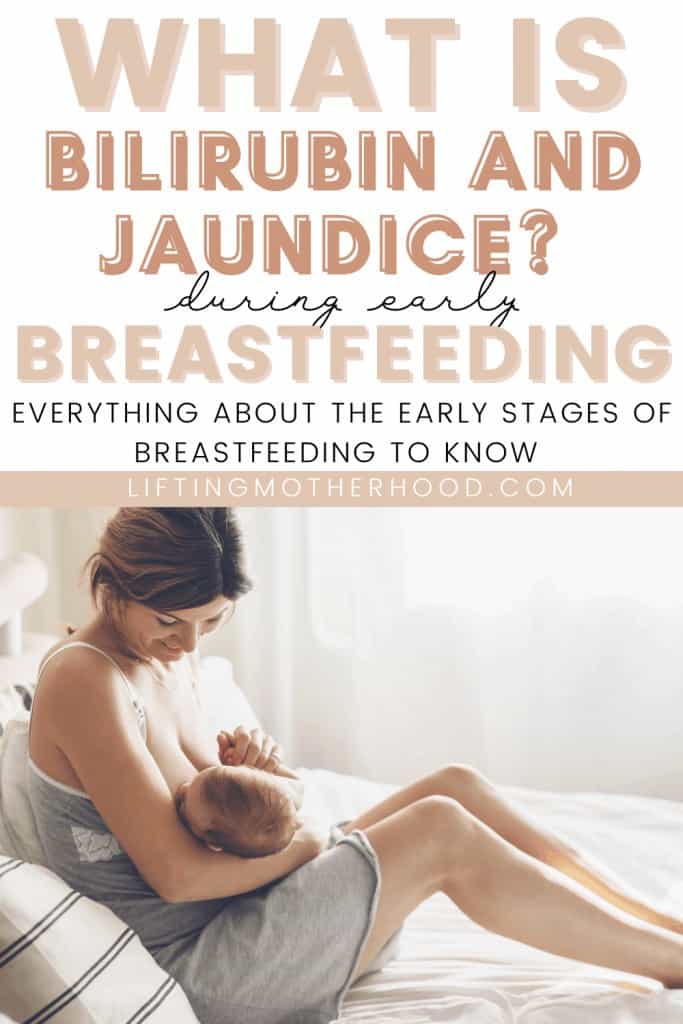Everything You Need To Know About Breastfeeding Benefits And Challenges
This post may contain affiliate links, which means I’ll receive a commission if you purchase through my links, at no extra cost to you. Please read full disclosure for more information.
There’s no doubt that breastfeeding has both benefits and challenges. And those benefits and challenges are supported by both medical studies and breastfeeding mothers’ personal experiences.
Moms typically either plan on breastfeeding their babies or plan to bottle (formula feed). And out of those that do plan on exclusively breastfeeding their babies sometimes come across an obstacle. Those obstacles could be associated with latching, tongue-tie, and other problems and end up having to formula feed.
To say the least, breastfeeding isn’t always an option for everyone. Meaning, there’s no reason for mom guilting those that can’t and choose not to breastfeed.
At the end of the day, the most important thing is fed is best. In this post, I’ll be going over both benefits and challenges of breastfeeding.

Early Breastfeeding Journey
Prior to Emory being born, I knew I wanted to breastfeed solely because of all the breastfeeding benefits. I wasn’t really aware of the challenges that came with breastfeeding until later.
Fortunately, my daughter latched on perfectly from the start. But after her newborn tests, the results showed high bilirubin levels.
So the doctor recommended we supplement with formula to lower those levels. The reason for this was because my milk hadn’t fully come in yet.
What is bilirubin?
According to Medline Plus, it’s normal for newborn baby’s bilirubin level to be a bit high after birth.
You might be thinking, what is bilirubin? When your red blood cells break down, a yellowish substance called bilirubin is formed.
This is where a condition called, jaundice, occurs. Jaundice is the yellowing of the skin and sclera (white part of the eye).
In the first 24 hours of your newborn baby’s life, they will undergo a few screening tests. When they get your baby’s blood sample, this is where they check the bilirubin levels. A normal bilirubin level for a newborn baby is 5 mg/dL.
And the reason why it’s normal to be high is because their liver is still immature. The liver is responsible for breaking down bilirubin for excretion.
In my case, my daughter’s bilirubin levels were slightly higher than normal. Therefore, she didn’t have to go through phototherapy (special light treatment that gets rid of excess bilirubin). They typically recommend phototherapy when bilirubin levels are above 10mg/dL.
And that is why the doctor recommended supplementing with formula since my breast milk was slow to come through. The extra fluid helps flush that excess bilirubin out of the baby’s system.
I ended up supplementing with formula for about 7 days. The hospital provided me with formula and a syringe with a tube. The nurse taught me to put the tube in the corner of my daughter’s mouth while she was breastfeeding.
Breastfeeding Benefits
I’m sure you’ve heard of all of the breastfeeding benefits. And the source of nutrients contained in breast milk. But there are also more benefits of breastfeeding than just that.
1. Breast milk helps build and support the baby’s immune system.
This is probably the main reason why breastfeeding appealed to me. Especially having my daughter during the pandemic. I knew I wanted to give her those antibodies that are loaded in breast milk to help fight bacteria and viruses.
I also learned that colostrum, the thick, yellowish liquid that comes out of your breasts the first few days of your baby’s life was like liquid gold. That’s because it’s filled with nutritious benefits, protein, and low in sugar.
2. Breastfed babies have a lower risk of SIDS (sudden infant death syndrome).
I wasn’t sure how breastfed babies had a lower risk of SIDS until I did some research.
So here’s what I found out. Breastfed babies nurse more often because breast milk is easily digestible. This means they need frequent feedings, which also means they are easily aroused during sleep than formula-fed babies.
According to Forbes, any breastfeeding, even combined with formula can cut the risk of SIDS in half.
3. Breastfeeding burns more calories.
This can vary with each woman. Some women have said that they didn’t see any weight loss and others swear that breastfeeding stripped their baby weight in the first couple of months.
I started noticing weight loss around 4 months postpartum. Right after my daughter’s birth, I still ate a surplus of calories to produce milk. And it probably didn’t help that my mom was visiting and cooking Korean food all day.
How many calories should a woman breastfeeding eat?
It’s only recommended that women eat an additional 300 calories when breastfeeding. So if you are eating more than that, the calories burned from breastfeeding is just canceling out the extra calories you are eating.
Related Posts
What Is A Let-Down Reflex During Breastfeeding And Other Breastfeeding Terms To Know
10 Honest And Sometimes Unbearable Breastfeeding Struggles
Frequently Asked Questions About Breastfeeding With Implants Answered
4. It’s an amazing bonding experience.
Throughout my pregnancy, I lived on mom blogs and read a lot about other women’s breastfeeding experiences. Some of the articles I read left me in tears because how incredible and beautiful their bonding experience was. I wanted to experience that with my daughter.
Breastfeeding is no doubt one of the best bonding experiences. Yeah, when my daughter started growing teeth and would chomp on my nipples, I wanted nothing to do with breastfeeding. Just for a split second.
And breastfeeding has taught me a lot about myself like patience (a whole-lot of patience) and time-management. Like I said earlier, breastmilk is quickly digested. So it’s important to time out the day and each errand run.
There’s nothing like a meltdown in the middle of the grocery store because your baby is hangry.
5. Saves money.
One day in my third trimester of pregnancy, I was walking around Walmart and curious about the price of formula. And holy crap was I shocked. Baby formula is not cheap.
I highly recommend applying for the WIC program for bottle feeding mamas. I did a public health rotation in nursing school and learned about all of these amazing programs for moms that I had no idea existed.
Breastfeeding Challenges
The list of breastfeeding benefits was not to guilt trip or persuade you to breastfeed by no means. But I wanted to inform you on a medical and personal level.
There have definitely been days where I wanted to throw down the towel and be done with breastfeeding for good.. And I’ve been more stressed than I like to admit.
For example, I live in nursing bras or clothes that are easy to unzip or pull-up to breastfeed. It’s like running a marathon at the grocery store to get my errands done in time for the next feed.
My nipples leak through my clothes in public and I won’t even realize it. Your boobs will get so engorged that it hurts. And you’re just going to feel bound.
When your baby starts getting teeth, that’s a whole other challenge to breastfeeding. Your baby will nibble, bite, pull, and make your nipples bleed. And even if it’s not to that extent, your nipples will be sore for days.
Other less personal challenges include latching issues, babies being tongue-tied, and reflux. If this is the case for you, I highly recommend bringing it up to your pediatrician for early intervention.
I hope these breastfeeding benefits and challenges gave you a little more insight on the reasons why I chose to breastfeed. And some reasons why breastfeeding isn’t for everyone.








These are all very helpful! Im an advocate for breast-feeding. Thank you for sharing!!